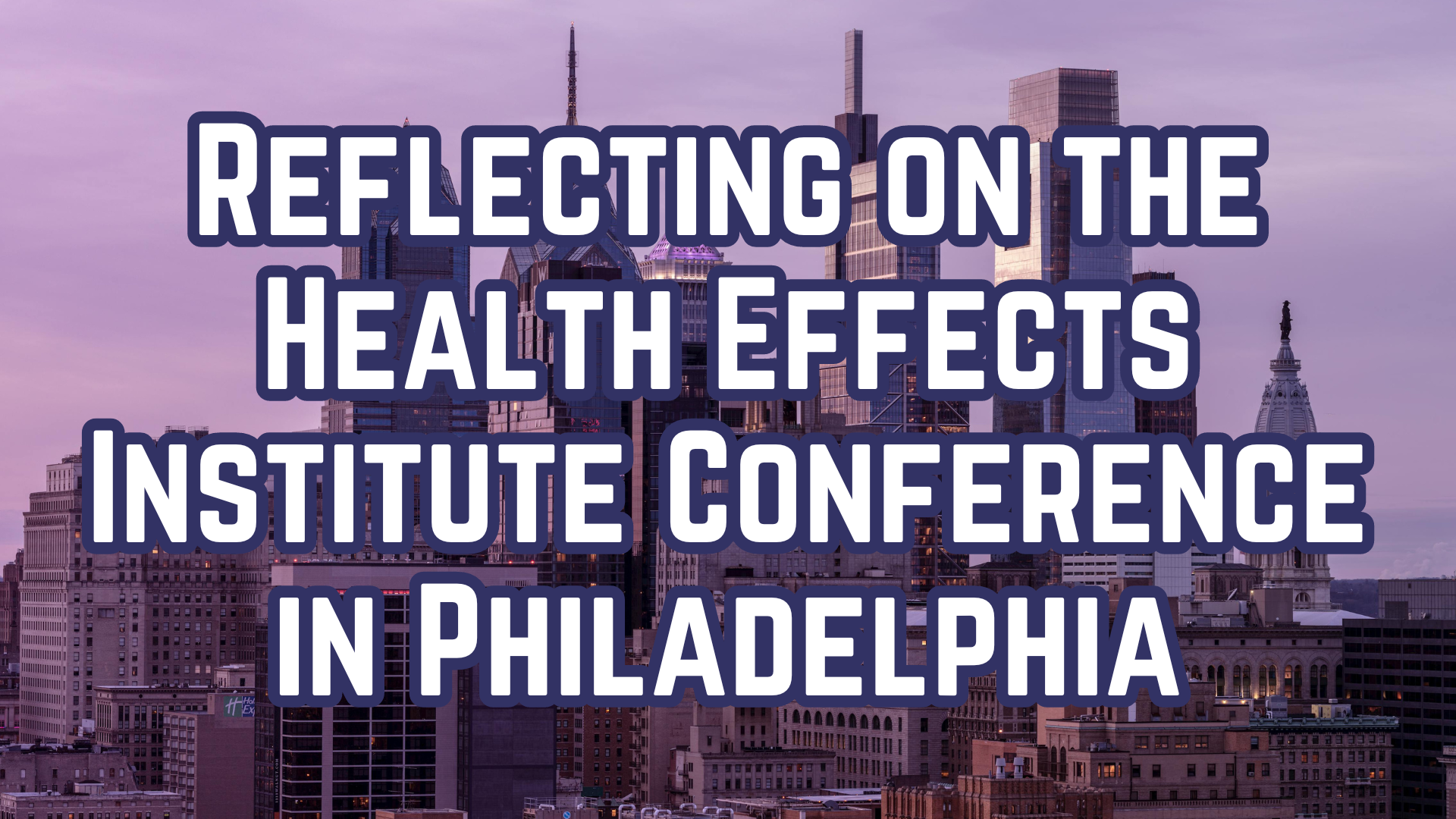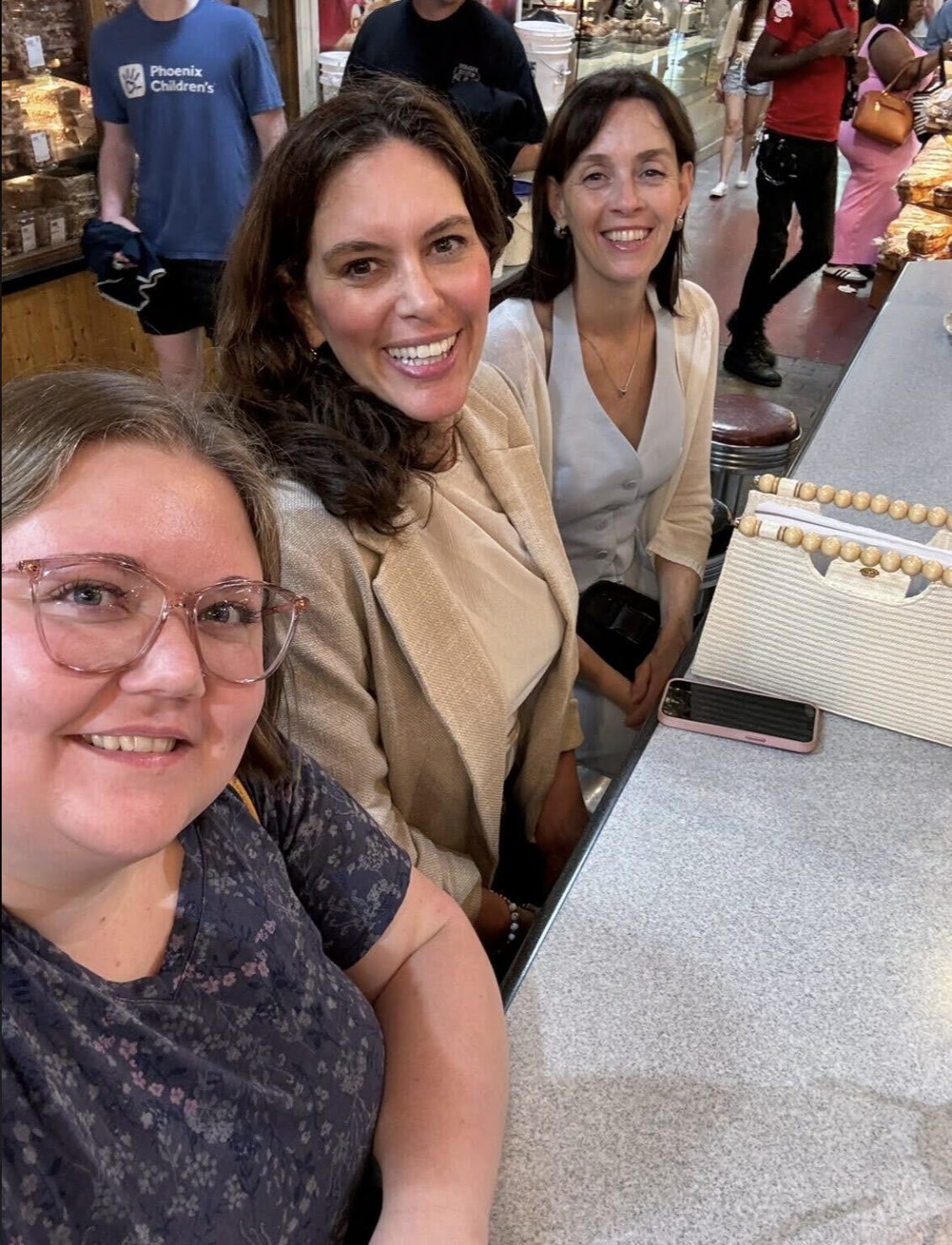
The Health Effects Institute is a nonprofit corporation that provides impartial and relevant science on the health effects of air pollution. The Philly Conference covered several topics that were of interest to our communities in both Washington and Greene Counties.

Tonya’s overall takeaway from the Health Effects Institute Conference in April 2024 is the feeling of hope. “Being from and living in a region like Southwestern Pennsylvania can sometimes feel isolating and hopeless. Growing up here, I simply thought that life was like this everywhere, and no one really questioned it. The jobs that were available, especially for men in the area, were in the extractive industries; coal and oil & gas jobs were mostly all that were accessible for them. Seeing houses that you always thought were pretty either being left to crumble or torn down because the extractive companies would buy or force the families who lived there out. Living way out in a rural county, there was never any public transportation and since my dad needed our family’s only car to drive to his oil & gas job, we had no choice other than to stay home. We did not have access to places such as grocery shops or any libraries.
“Since I started working at CCJ, I have had several opportunities to attend conferences like this one through HEI. Each time I become more aware that, in other places, the issues I face(d) are being studied and solutions are being thought up. This is not what life is like everywhere else in the country or world. As I walked through the poster sessions at the conference, I would look at the maps on the posters and be momentarily taken aback that so many of them focused on Greene County specifically, as that is where I was born and raised and where most of my work at CCJ takes place. Myself and others here do not necessarily even know that institutions like Yale University, George Mason University, and the University of Texas at Austin’s McKetta Department of Chemical Engineering, as well as many others, are studying and working on solutions to our economic, environmental, and transportation issues.”
Jodi also attended the conference and wanted to share some specifics about HEI and the things they plan to do this year:
There are three ongoing air quality and noise studies assessing the potential links between community exposures, entitled Tracking Community Exposures and Releases Collaboration (TRACER.) The two parts of this study include air quality and noise monitoring. By modeling exposure, they can develop a nationwide model that will predict chemical emissions and their effects on the air. They want a better understanding of potential exposures at different distances over the life cycle of the well. This is why we must not rely on self-reporting from industry.
HEI Energy funded two completed water quality studies to understand the potential links between Unconventional Oil and Gas Development (UOGD) and groundwater contamination. They are currently starting a new study that will build a model for understanding residential well water vulnerability to contamination from UOGD across the Marcellus Shale Region. HEI relies heavily on community engagement, government officials, industry, and academic institutions in their study locations. This is why it is important for us as a community to take the “See Something, Say Something” approach. Our community members need resources and organizations like CCJ to help bring awareness to potential contamination.
There are also 2 new studies that we will be paying attention to:
RFQ E23-1 : Assess trends in air quality and community exposures with UOGD.
RFQ E23-2 : Conduct regional groundwater quality monitoring to help understand how spills associated with UOGD might affect groundwater used as a source of drinking water in the Marcellus region.
CCJ staff sometimes attend meetings or conferences like this one to learn and to gather information to bring back to our communities in Washington and Greene Counties. If you have any questions about anything we brought back from this conference, or if you see any conferences or learning opportunities that we should check out, please let us know!
